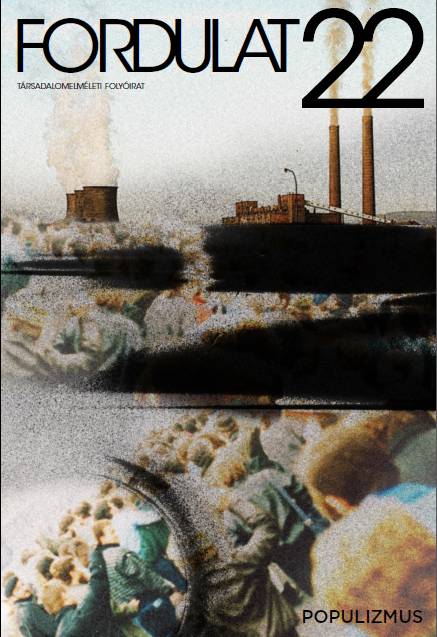Marxizmus az osztályharc után. Ernesto Laclau és Slavoj Žižek vitája a populizmusról
Marxism after Class Struggle. The Populism Debate of Ernesto Laclau and Slavoj Žižek
Author(s): Viktor KissSubject(s): Politics / Political Sciences, Philosophy, Social Sciences
Published by: Fordulat
Keywords: populism;marxism;zizek;laclau
Summary/Abstract: In the early 2000s a heated debate emerged between Slavoj Žižek and Ernesto Laclau on populism, which had not been lacking even the fundamental questioning of each other’s positions. In this article I will attempt to reconstruct the theoretical positions of the two authors. My starting point is that the context of the debate was the crisis of Marxism’s idea of politics. The crucial question of the debate was whether with the rejection of the strict classism all the forms of class politics should be rejected, or it can be reformulated under the conditions of new millennium? Had class struggle been ceased, or it can be rearticulated into a new class politics? In the first section of the article I will introduce Ernesto Laclau’s argument, who claimed that the re-foundation of the radical left’s idea of politics may be carried out only along the theory of populism. I will argue that for Laclau the concept of class is inherently erroneous, because it hindered Marxists to recognize the actual logic of politics. According to Laclau the theory of populism not only captures the political nature of global capitalism, but also claims that this logic, due to its universal dynamics, is suitable for the re-foundation of radical leftist politics as well. In contrast with this, Žižek argues that the cost of Laclau’s concept of populism is the postmodern apologetics of liberal capitalism and the give up of revolutionary politics. He thinks that not the replacement of class-theories by populist theories is required, rather a new form of class-theories that is able both to explain populist phenomena and to establish new class politics. Žižek outlines his class topography in this context, and argues that populism is nothing more than the effect of the struggle between the Fantasy and the Symbolic classes. This paper concludes that in retrospect the texts of Žižek and Laclau are offering two paradigms of radical leftist politics, which are getting more and more adequate to describe the phenomena of global-postmodern capitalism, especially today, in the period of the refugee „crisis” and the upsurge in right-wing populism.
Journal: Fordulat (2008-tól Új Folyam)
- Issue Year: 2017
- Issue No: 22
- Page Range: 30-53
- Page Count: 24
- Language: Hungarian

